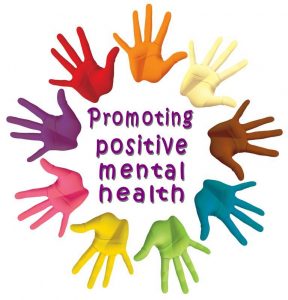Persons with mental health disorders need medical and psychological attention. In seeking mental health services, the primary care provider or general physician will make the referral to a psychiatrist or psychologist for the initial psychological evaluation. Once the person enters the care treatment, there are other specialists involved to partake in the treatment plan. They are collectively called mental health professionals. This article will identify the members of the mental health team and discuss their specific roles to the overall management and care of the person seeking mental health treatment.

Psychiatrist
A psychiatrist is a specialized trained doctor in assessing mental illnesses and psychological problems. “A Psychiatrist is a medical doctor who specializes in mental health issues and has specific training in medication for depression.” Dr. Chantal Gagnon PhD LMHC explains. Their training and education help in the evaluation and determination of the specific treatment plan for the individual, family, and group that needs psychiatric help. They utilize screening tools and interpret the results to aid in the diagnosis of the mental illness. Psychiatrists are also trained in providing highly skilled procedures and activities such as group therapies, psychosomatic treatments, and prescription of medications.
Psychologist
A clinical psychologist is not a medical doctor. They can be called a doctor if they pursue a doctorate in philosophy or clinical or counseling psychology. Unlike psychiatrists, they cannot prescribe medications, but they are responsible and capable of providing behavioral therapies, counseling services and giving psychological testing such as IQ tests and personality tests. Psychologists also work with large companies in the hiring process and helping employees maintain and achieve work-life balance.
Psychiatrist Nurse
A psychiatrist nurse has specialized training in performing nursing care and management on persons with mental illness. They can work in several settings like hospitals, mental institutions, home care, residential facilities, and correctional facilities. An inherent and unique characteristic of the nursing profession is the use of the nursing care process, which is also utilized in the care of psychiatric patients. This involves the assessment, planning, implementation and evaluation of nursing activities.
Occupational Therapist
The work of an occupational therapist is vital in the treatment and recovery of persons with mental illness. Sometimes it is hard for the person with mental illness to bounce back and live in the community. They will find difficulties in finding a job, not knowing where to go when they need help, and even in doing simple things to help their way in daily activities. Occupational therapists can guide in this aspect by engaging them in activities to regain functionalities and perform practical habits of daily living.
Pharmacists
While psychiatrists prescribe medications, pharmacists are responsible for dispensing the drugs. They can provide health education to persons taking certain medications in managing the symptoms of mental illness.
Counselors and Therapists
They are certified mental health professionals who can assist persons through counseling and therapy sessions. Counseling can be done in short-term while therapy can take a longer duration depending on how the person responds to the meetings. As Ryan Mebust – LMFT elaborates the functions of counselors, he stated that “We all experience obstacles in life that keep us from feeling and being whole. Many have found counseling as a way to invest in themselves, their relationships, or their families in order to support a better or new meaning on life.”
Social Worker
Social workers often make house calls to visit and observe how the person go through to their daily lives. They also provide supportive counseling and can assist the person in finding help for their mental health concerns.
Chaplain and Other Spiritual Leaders
In an article of Marjie L. Roddick, MA, NCC, LMHC “Spiritual wellness is related to your values and beliefs that help you find meaning and purpose in your life. Spiritual wellness may come from activities such as volunteering, self-reflection, meditation, prayer, or spending time in nature.” At times, the intervention of a spiritual leader is also beneficial in the recovery, habilitation, and rehabilitation of persons with mental illness. Their role is more of giving spiritual guidance and moral support. Studies have shown that there are individuals who obtained positive outcomes in their conditions through the help of chaplains, parish priests, pastors, nuns, and other religious leaders.

The members of the mental health teamwork toward the following aims in the care and management of persons with mental illness:
- To ensure that they maintain optimal functioning in their current mental state.
- Help in their return to the community where they can work, live, and contribute as a resident.
- Assist and offer support to families.
- Educate the community regarding mental health and illness thus reducing stigmatization and discrimination.